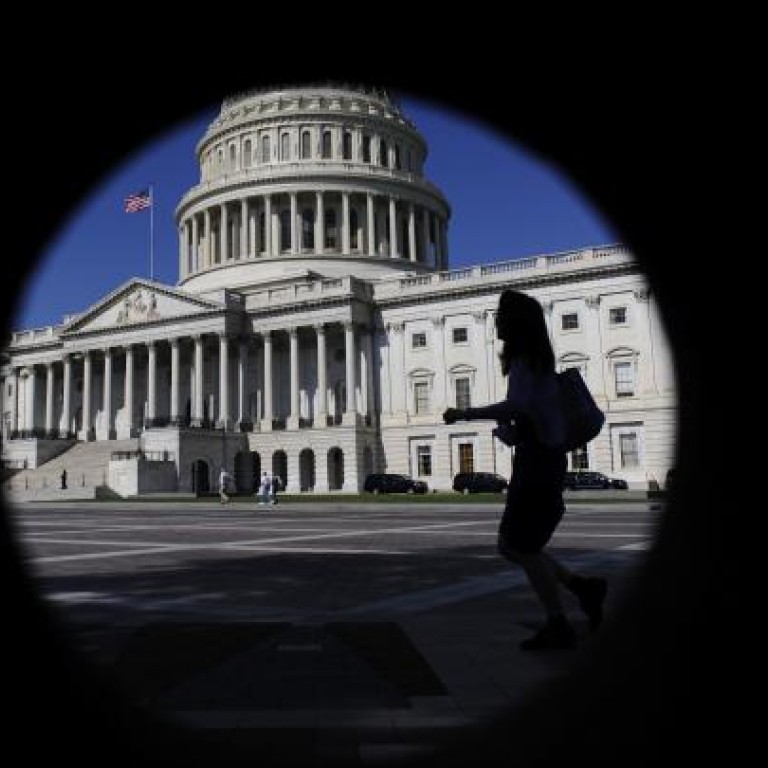
High price for democracy in the US
Kevin Rafferty says Americans may understandably demand more from their US$6 billion elections
The two most powerful countries on earth will choose their top leaders next month, but what a contrast in styles: in the US, open, public razzamatazz, the election in the hands of the people, and with days to go who knows whom they will choose; in China, intense politicking and backstabbing behind closed doors, and the result is already known without the mess of public participation.
Watching the wretched quality of the public debates between President Barack Obama and challenger Mitt Romney, as well as the bad-tempered tenor of the election campaigns, it is tempting to say that it would be better to keep these things behind closed doors.
Even so, the United States has to answer the question as to whether its democracy is really democratic. Chinese commentators point out that democracy - in the sense of "one person, one vote" - came late to the United States, and to all the self-proclaimed "democratic" world. Women and blacks were only admitted belatedly and reluctantly in the US.
Does true democracy have to include elections? Yes, it is a necessary condition, to give the people their say. In defence of Western democracy, even in the dark days of the 18th century when the vote in Britain was limited to householders owning property of a certain value, lively public hustings allowed the plebs to make their voices heard and throw rotten fruit, while the aristocrats did their dirty corrupt deals behind the scenes. Hogarth captured the events brilliantly.
Modern US elections cost too much. The latest estimate is that almost US$6 billion will be spent on the presidential and congressional elections this year, yet another expensive record. The last British elections were a bargain - the equivalent of US$49 million.
The biggest donors are big corporations. It would be naive to think they contribute for the public good. Critics claim Obama was too kind to the big "banksters" after the financial crisis because big banking groups contributed handsomely to his campaign. Financial and business groups can be fickle, as Obama is discovering. Romney has become their darling, collecting US$40 million from finance, industry and real estate, against less than US$15 million for Obama.
America needs to be careful about the dangerous influence of money. The cost of fighting elections means that successful members of Congress are rich, and correspondingly vulnerable to money politics. According to the , the median net worth of members of Congress rose by 5 per cent during the recession, while ordinary Americans experienced a fall of 39 per cent. By 2010, the median net worth of members of the House of Representatives was US$746,000, and for senators it was a whopping US$2.6 million.
Electoral democracy offers a limited choice. To take the presidential election, an American can cast one vote, either for Obama or for Romney. There is no way for him or her to say that, for example, I would support Romney except for his China policy. Only a few US states and fewer countries, like Switzerland, use referendums to seek people's views even on pressing individual issues.
One of the depressing aspects of this week's presidential debate was that the candidates not only talked past each other but played fast and loose with facts. It would have been helpful if the host had employed a fact-checker to list the number of Pinocchios (a reference to the puppet character whose nose grew longer when he told a lie) scored by each candidate.
Money is not the only disease affecting American democracy. Voters, courted assiduously during the campaign, have virtually no say once the election is over. For a true democracy, elections are necessary, but are not sufficient.
There is no check whether the elected politicians fulfil their promises. Romney has insisted that he will get tough with China, repeating his pledge to label China a currency manipulator from day one of his presidency.
That may be an example of a promise better not kept. Romney supporters admit that Democratic and Republican policies on China have been remarkably consistent over 30 years and predict that a President Romney would seek accommodation with Beijing.
Between elections, Western democracy in general and US democracy in particular are failing. Political theory holds that elected politicians are there as people's representatives.
Edmund Burke expressed the duties of an elected representative with great clarity and eloquence in 1774, proclaiming that a member of parliament must not sacrifice "his unbiased opinion, his mature judgment, his enlightened conscience… to any man or set of men living… They are a trust from Providence, for the abuse of which he is deeply answerable. Your representative owes you, not his industry only, but his judgment; and he betrays, instead of serving you, if he sacrifices it to your opinion."
How high-minded: too often, modern congressmen are slaves to their parties or to the people who funded their election. You can see this every day on the floor of the US Congress. Partisan polarisation in American society is worse than at any time in the past 25 years, according to Pew Research. It is likely to get worse still, dangerous for politics, potentially lethal for the economy.
Americans should beware of pointing fingers against China until they have cured the cancer raging through their system.

